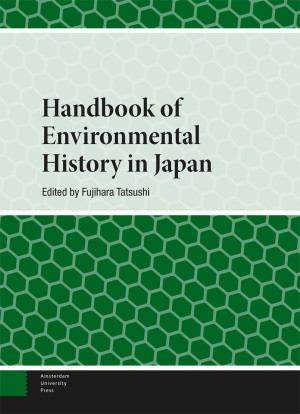Japan: a land plagued by volcanoes, earthquakes and typhoons, yet blessed with a climate suitable for all manner of agriculture and forestry, and positioned where ocean currents collide and bring an abundance of the ocean’s resources to its people; a country which moved quickly from an agrarian pre-industrial society to become one of the world’s great economic powerhouses in only a few decades, spoiling water, air and land in the process, bringing misery to many of its people; a country with expansionist desires, colonizing neighboring lands, leading to war, defeat, destruction and, for the first time in history, nuclear devastation and its aftermath; a land and its people which share a remarkable resilience and ability to evaluate and correct their mistakes and renew their trajectory towards a better future.
The sixteen chapters of the Handbook of Environmental History in Japan

